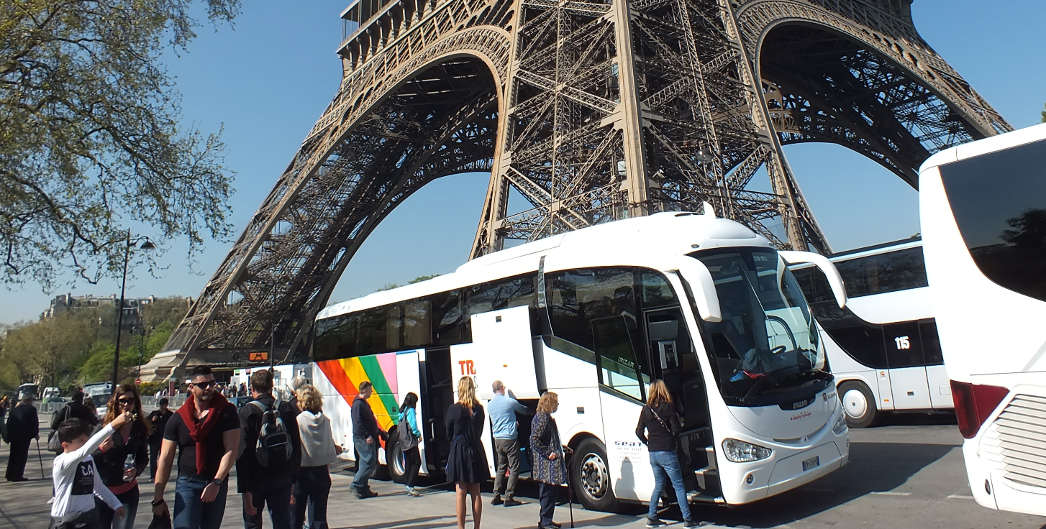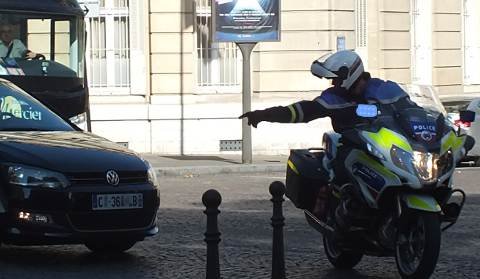

Is it safe to visit France ?
Are
there any real risks for tourists ?
- Explore France ►
- Essential pages
- Travel in France
- Where to go
- What to see and do
About-France.com
- the connoisseur's guide to France
Coronavirus information.
In 2025, there are no covid restrictions relating to entry into France
If this changes, new information will be posted on Covid passes for France
In 2025, there are no covid restrictions relating to entry into France
If this changes, new information will be posted on Covid passes for France
Are tourists and visitors safe in France in 2025?
 Armed
military mingling with tourists help ensure the safety of tourists in
Paris
Armed
military mingling with tourists help ensure the safety of tourists in
ParisOf course, the presence of tourists in Paris, as in any other tourist hotspot, attracts petty criminals of all sorts, keen to deprive unsuspecting tourists of their money or valuables... usually be stealth, not by violence. But that's not a problem specific to France or to Paris; it's a problem specific to tourism as a whole. Take care, look after your money and your papers carefully, don't fall for the tales of the tricksters, and you should be perfectly safe in France, wherever you go
 2025 :
2025 :
It is now over eight years since a major terror incident took place in France Since the terror attack in Nice, on Bastille Day, 2016, barring "lone wolf" attacks on law enforcement personnel and others, there has been no major incident . Armed police and military are on patrol in all major tourist areas, and police intelligence has successfully prevented terror attacks in France in the past year, as in many other countries.
Furthermore in France, as anywhere in Europe, "gun crime" is pretty well non-existent. The only people allowed to carry guns on the street are the cops, the military and security guards....
Photo:
An
impressive police presence on the streets of Paris reassures Parisians
and visitors alike.
Seeing risks in perspective
In 2015, 147 people died in France as victims of terrorist attacks. That was exceptional; it was more in one single year than the total for the previous 30 years combined.By contrast, in the USA in 2022, 19,592 people were killed by firearms – and that's the official figure excluding suicides....
Yet even in the fatal year of 2015, the likelihood of being killed in a terror attack in France was just 1 in 480,000 - almost one in half a million. This is a very small risk compared to other risks of accidental death.
It is sobering to compare this rate to annual figures for the risk of getting killed in the USA, which are
- 1 in 19,000 of dying in a road accident ,
- 1 in 25,000 from assault by a firearm
- 1 in 99,000 of dying in a fire.
- 1 in 150,000 of alcohol abuse
So in spite of the alarmist warnings, there can only be one answer to the question "Is it safe to visit France" and that is a resounding YES. France is safe, and Paris is one of the safer "world cities". And unless some massive international terror campaign should break out in the coming weeks and months, France will remain a safe place to visit. It is very important to see things in perspective – something that is increasingly difficult to do in the age of fake news, viral tweets and clickbait clips.
Tourist scams.
Like every tourist city worldwide, Paris has its share of fraudsters trying to rip off unsuspecting tourists. Don't fall for the young ladies in tourist spots, wanting you to sign a petition, or the card tricksters on the steps of Montmartre. Check out these and other tourist scams , in Paris and worldwide, on Travelscams.orgFor about 31,800 of these communes, the risk of a terror outrage is close to nil: for some 200 sensitive or symbolic communes there is a risk that someone or some people will plan an attack, which is why the terror alert in France, as in many other countries, is currently on "high". But the risk of any of these planned outrages actually succeeding has to remain low. Some will; most won't. It is quite possible that there will be one or more terrorist attacks in France in the months ahead. It is highly unlikely that you, the potential tourist reading this page, will get caught up in it.
The next terrorist attack or mass-shooting, when it comes, may be in Paris, but it is just as likely to be in London, or Manchester, or Brussels, or New York, or Los Angeles, or Berlin, or Madrid, or Sydney, or Copenhagen... not to mention Bombay or Colombo. It could be at a major world airport, or on a train somewhere. No-one knows.
On the other hand some things are certain. In France, terrorists are unlikely to target a small-town holiday resort frequented largely by tourists, and they are unlikely to target any rural location. There would be no symbolic value in either of these.
Paris is a prime target, because it is symbolic; but there is such tight security in and around the French capital that it may not be a target. And in any event, Paris is a very large city, and even in Paris, the likelihood of you, the tourist, actually being in the wrong place at the wrong time, is minuscule.
Statistically, you are much more likely to be the victim of a road accident at home (as a driver or passenger or pedestrian) than the victim of a terror attack in France. You are even more likely to be the victim of accidental poisoning in your home country, than victim of a terror attack while on holiday in France. And probably you have never even thought the risk of being the victim of accidental poisoning.
If one person a day is the victim of poisoning, it does not even make the national news; but that's 365 deaths in a year. Yet if a quarter of that number, that's 91 people, are killed in a terror attack once in the year, it makes major headline international news, even though less people are concerned..
So to the question; is it safe to visit France this year ? the answer is yes. Even if, instead of coming for a week or two to France, you decided to stay in your own home, or venture to some remote spot far from any terrorist's wildest dreams, you could still be victim of an accident. Absolute safety doesn't exist.
A terrorist attack is just one among dozens of misadventures that could befall a tourist while on holiday anywhere; and an unlikely one at that. And compared to other places in the world, France in 2020 is likely to remain a pretty good place to be, in terms of relative safety.
For the record: there have been less than thirty islamist-related terror attacks in France since the year 2000; of these, only four, including the 2016 Nice attack, resulted in more than two deaths. The total number of deaths from terrorism in France this century is now around 290.
To put things firmly in perspective: in the USA, in the six and a half months from Jan 1st to July 15th 2016, 6190 people were murdered by firearms, and 2693 pedestrians were killed on the roads. (Source)
Site
search: click here to search
About-France.com
Use this function to look for information by keyword, or follow the hyperlinks from page to related page, to discover a wealth of information about France, French life and customs, tourism in France and the ways and life of the most visited country in Europe.
Use this function to look for information by keyword, or follow the hyperlinks from page to related page, to discover a wealth of information about France, French life and customs, tourism in France and the ways and life of the most visited country in Europe.
Copyright notice: Website and text © About-France.com 2007 - 2025 except where otherwise indicated.
About-France.com
Home
page - Site search
- Regions
- Maps of France